20 Natural Foods That Can Help Lower Blood Pressure, According to Experts
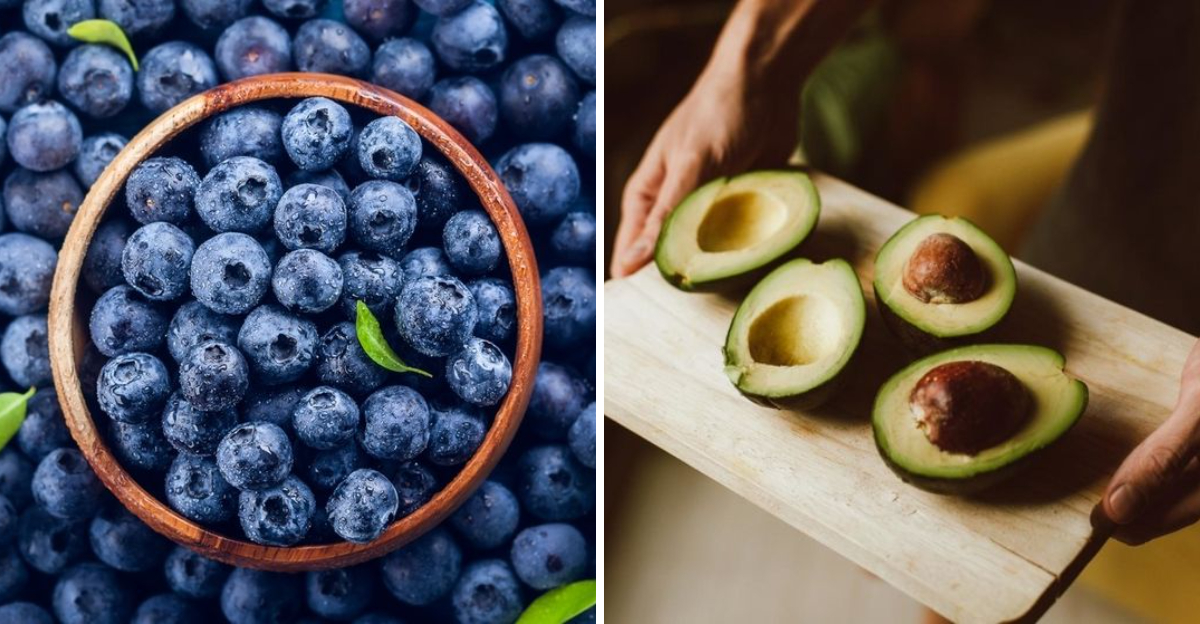
High blood pressure is a common health issue that can be managed through diet. Experts recommend incorporating natural foods known for their blood pressure-lowering properties. This article explores 20 such foods, detailing their benefits and how they can fit into your diet.
1. Leafy Greens (Spinach, Kale, Swiss Chard)
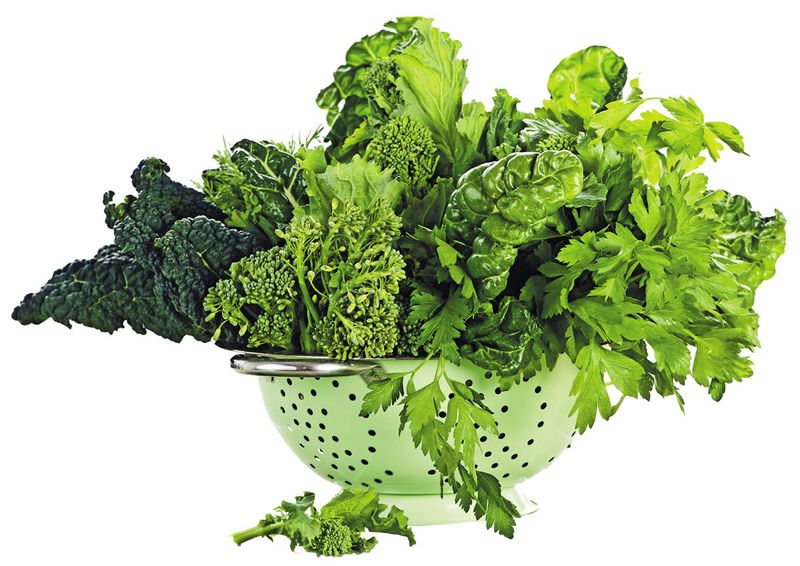
Leafy greens like spinach, kale, and Swiss chard are champions of heart health. Packed with potassium and magnesium, these greens help the body flush out excess sodium, easing the tension in your arteries. Imagine savoring a fresh kale salad or a spinach smoothie—both delicious ways to incorporate these greens into your diet. Their rich nutrient profile doesn’t just promote lower blood pressure; it also supports overall well-being. Fun fact: Just a cup of cooked Swiss chard provides nearly a third of your daily magnesium needs. So, go green and enjoy the benefits.
2. Beets
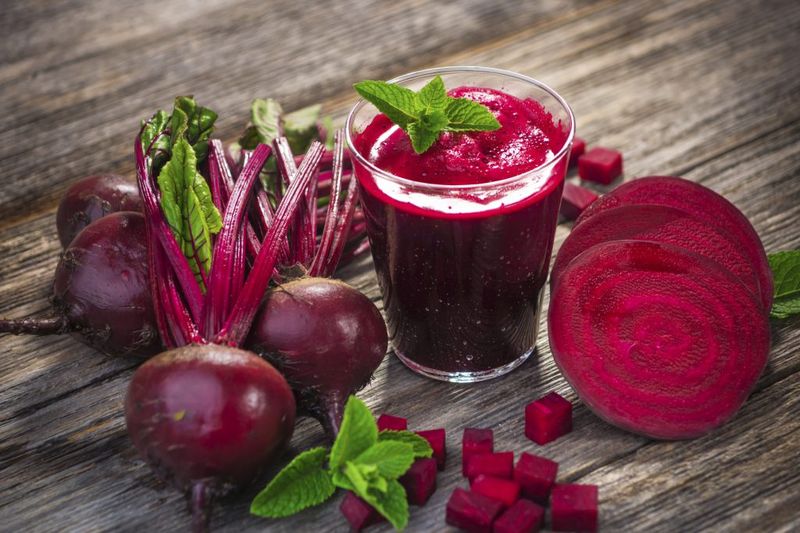
Beets are nature’s gift to cardiovascular health, rich in nitrates that help widen blood vessels and improve blood flow. Whether roasted, juiced, or turned into a delightful beet salad, these vibrant root vegetables are a tasty addition to any meal. The earthy flavor pairs well with a variety of dishes, making them versatile and heart-friendly. Did you know? Drinking beet juice has been shown to reduce blood pressure in just a few hours. Embrace the deep red hue of beets and let them work their magic on your heart.
3. Berries (Blueberries, Strawberries, Raspberries)
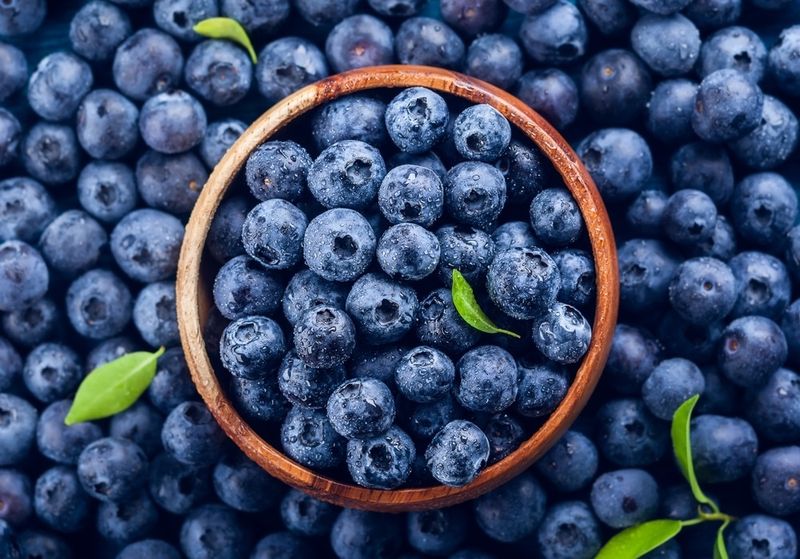
Berries are tiny powerhouses loaded with flavonoids and antioxidants, perfect for improving blood vessel function and reducing inflammation. Whether you sprinkle them on your breakfast cereal or blend them into a smoothie, berries add a burst of flavor and health benefits. Their high antioxidant content not only combats oxidative stress but also supports heart health. Fun fact: Blueberries have been shown to lower the risk of heart disease due to their rich anthocyanin content. Enjoy these juicy gems and nourish your heart one bite at a time.
4. Oats
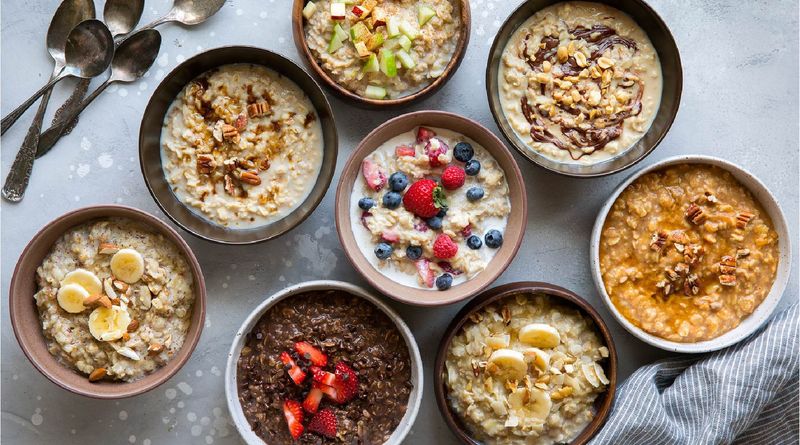
Oats are celebrated for their heart-friendly properties, thanks to beta-glucan, a soluble fiber known to reduce both cholesterol and blood pressure. A warm bowl of oats in the morning, perhaps adorned with fruits and honey, sets a nourishing start to your day. This humble grain is versatile—think oatmeal cookies or savory oat porridge. Oats not only fill you up but also support cardiovascular health. A surprising fact: Regular oat consumption is linked to a significant reduction in heart disease risk. Start your day with oats, and feel the difference.
5. Bananas
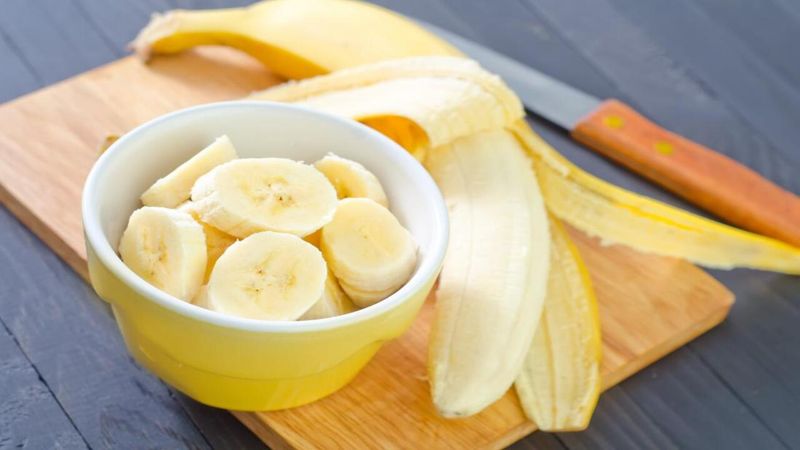
Bananas are the go-to fruit for a potassium boost, essential for counteracting sodium’s effects and balancing fluids in the body. Whether eaten alone or sliced over cereal, bananas are convenient and nutritious. Their mild sweetness and creamy texture make them a delightful snack. Did you know? Bananas can help maintain healthy blood pressure levels with just one fruit providing about 9% of your daily potassium needs. Keep a bunch handy for a quick energy boost and heart-friendly nourishment.
6. Garlic
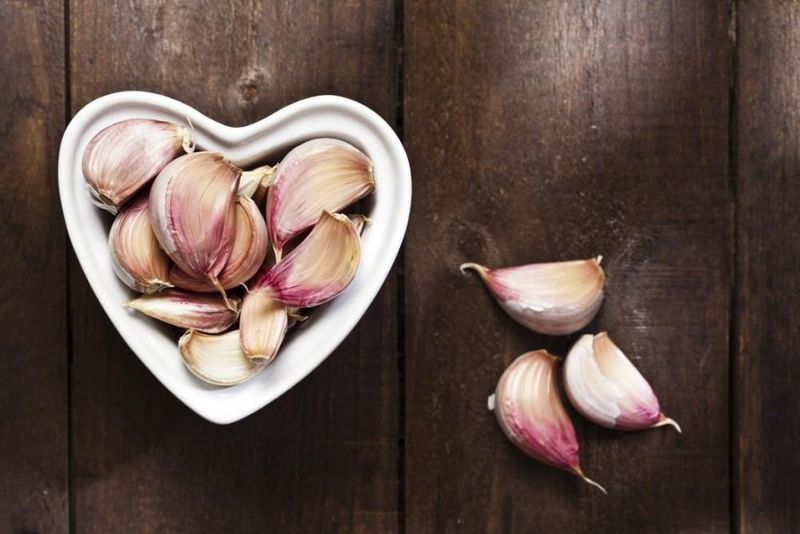
Garlic is celebrated for its potent heart health benefits, thanks to allicin, a natural compound that supports blood vessel dilation. Adding garlic to your meals not only enhances flavor but also boosts cardiovascular wellness. Imagine the aroma of garlic sautéing in olive oil, a simple way to elevate your dishes. A fascinating tidbit: Ancient civilizations used garlic for its medicinal properties long before modern science confirmed its benefits. Embrace garlic’s pungent charm and let it fortify your heart’s health one clove at a time.
7. Salmon (and Other Fatty Fish)
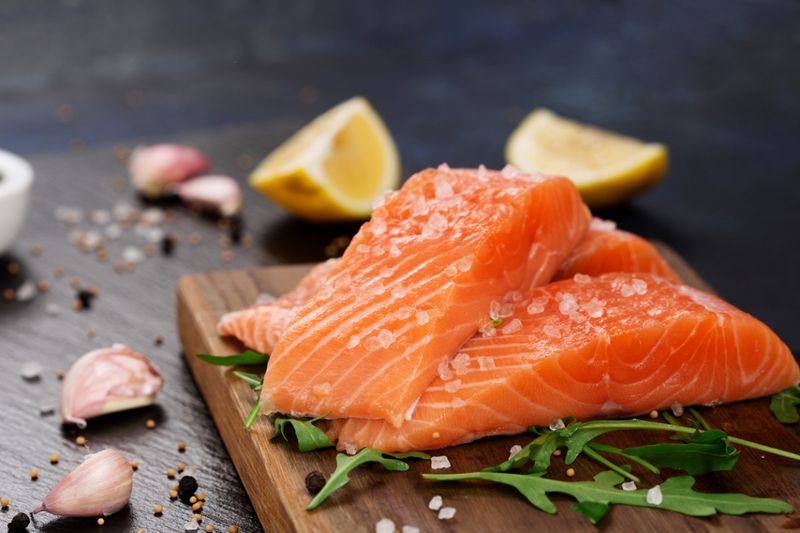
Salmon, rich in omega-3 fatty acids, is a superstar in heart health circles. These healthy fats reduce inflammation, lower blood pressure, and support heart rhythm. Picture a juicy salmon steak, grilled to perfection, offering a nutritious and delicious meal. Not just salmon, but other fatty fish like mackerel and sardines share these benefits. Fun fact: Regular consumption of fatty fish is linked to reduced risk of heart disease. Enjoy these flavorful fish varieties and nourish your heart with every bite.
8. Avocados
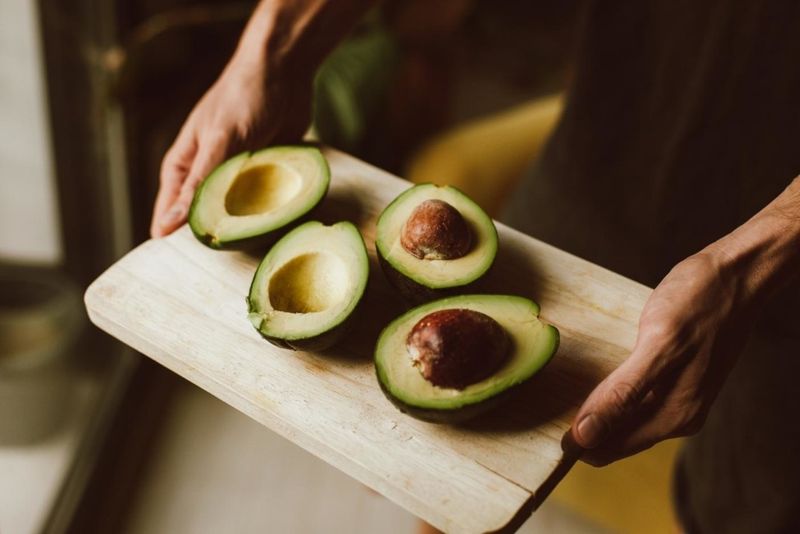
Avocados, with their creamy texture and mild flavor, are a heart health staple. Packed with potassium and monounsaturated fats, they help maintain healthy blood pressure levels. Whether mashed into guacamole or sliced over toast, avocados add nutrition and taste. Their friendly fat profile supports cholesterol balance and cardiovascular wellness. Did you know? Avocados contain more potassium than bananas, making them a top choice for blood pressure regulation. Enjoy their versatility and let avocados enhance your heart’s vitality.
9. Pomegranates
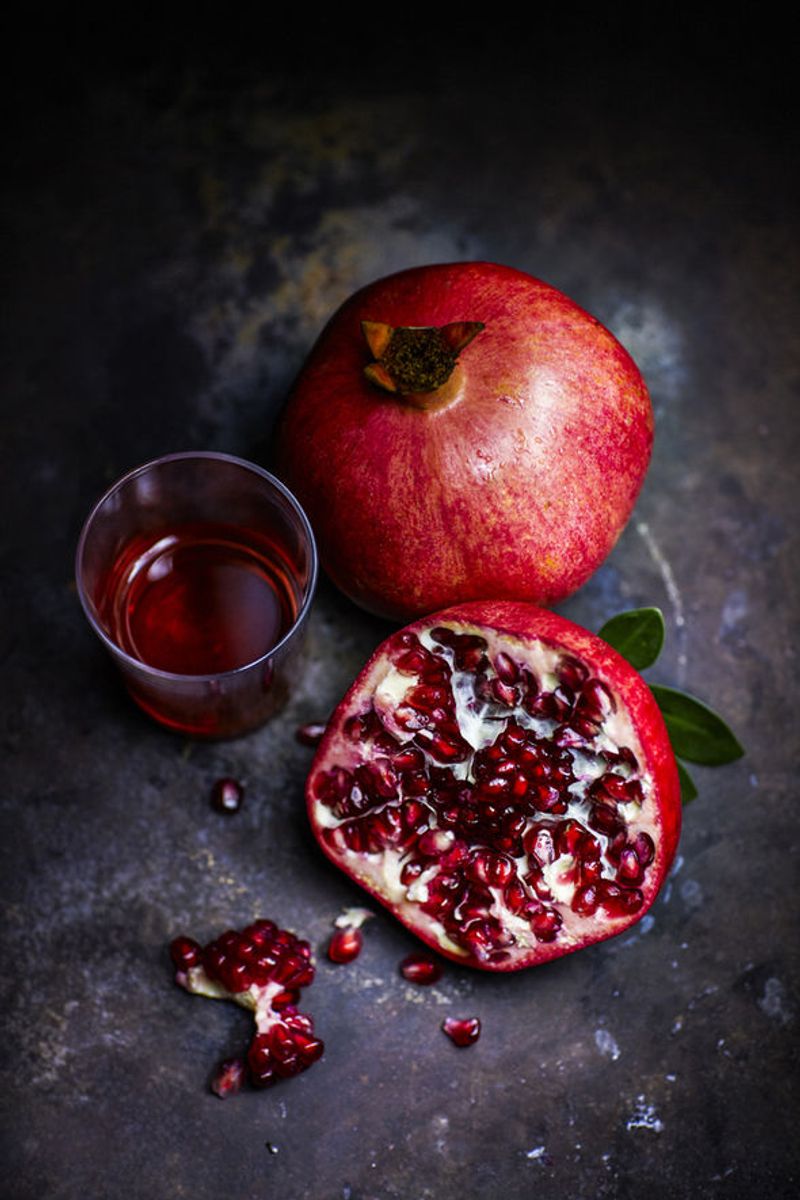
Pomegranates, with their jewel-like seeds, are as delicious as they are beneficial for heart health. Drinking pomegranate juice is linked to lower systolic blood pressure, thanks to its rich antioxidant content. These fruits are perfect in salads or as a refreshing juice. The vibrant color of pomegranates makes them an eye-catching addition to any dish. A fun tidbit: Pomegranates have been revered as a symbol of health and fertility in various cultures for centuries. Embrace their sweet-tart flavor and nourish your heart.
10. Nuts (Especially Walnuts and Pistachios)
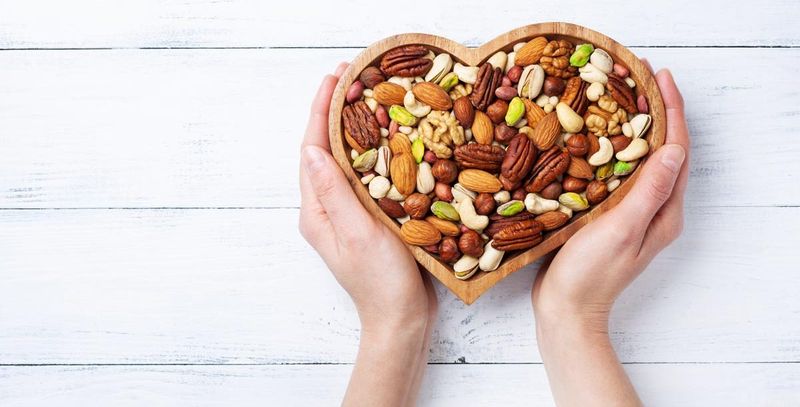
Nuts, particularly walnuts and pistachios, are heart health allies, rich in magnesium and healthy fats. Incorporating a handful of these nuts into your diet can support blood pressure regulation and reduce vascular resistance. Whether tossed into salads or eaten as a snack, nuts provide crunch and nutrition. An interesting fact: Walnuts are one of the few plant sources of omega-3 fatty acids, contributing to their heart-friendly reputation. Enjoy nuts in moderation and let them add a delightful crunch to your heart-healthy diet.
11. Greek Yogurt (Unsweetened)
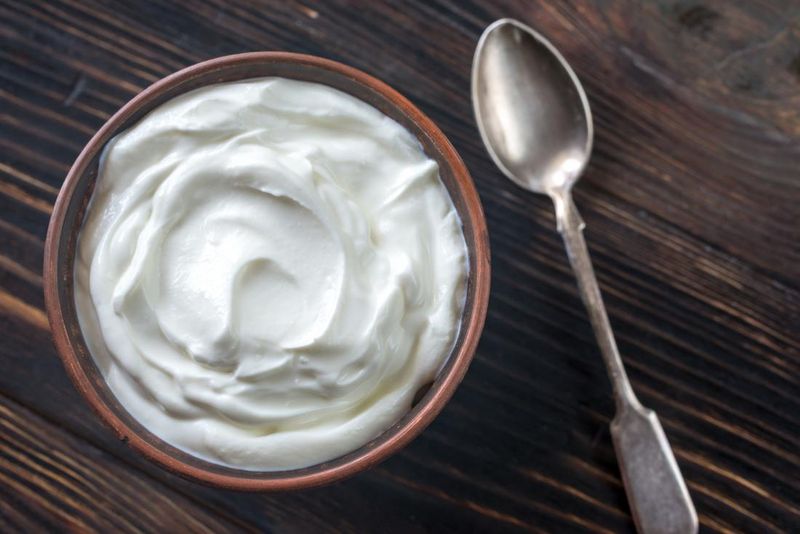
Greek yogurt is a nutrient-rich choice, offering calcium, potassium, and protein, all essential for blood pressure regulation. A bowl of unsweetened Greek yogurt, perhaps adorned with fresh fruit, serves as a delightful snack or breakfast. Its creamy texture and tangy flavor make it a versatile ingredient. Did you know? Regular consumption of Greek yogurt is associated with improved metabolic health and lower blood pressure. Embrace its richness and let Greek yogurt play a starring role in your heart-healthy regimen.
12. Lentils and Beans
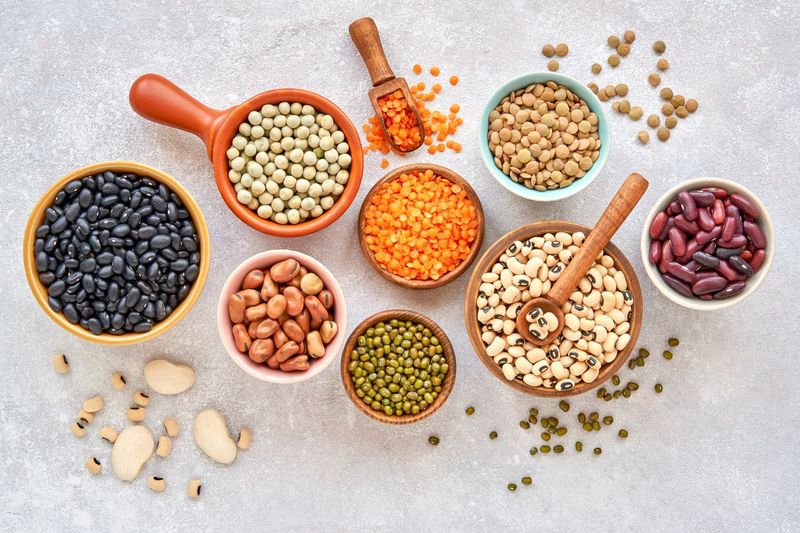
Lentils and beans are nutritional powerhouses, packed with fiber, magnesium, and potassium. Regular consumption of these legumes is linked to lower blood pressure and improved cholesterol levels. Whether in soups, stews, or salads, they add heartiness and nutrition to meals. Their versatility makes them perfect for a variety of cuisines. Fun fact: Lentils are one of the earliest domesticated crops, with a rich history in many culinary traditions. Incorporate them into your diet and reap their heart-friendly benefits.
13. Dark Chocolate (70% Cocoa or Higher)
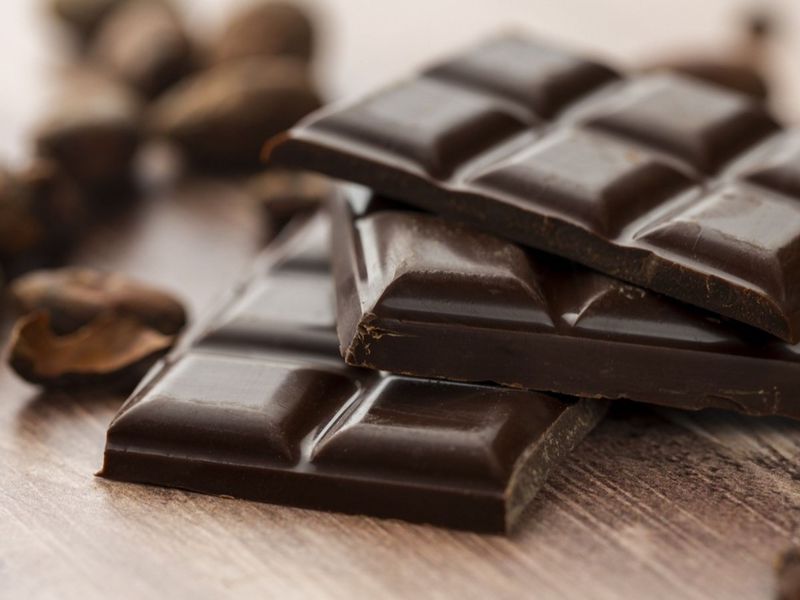
Dark chocolate, especially with 70% cocoa or higher, is a treat that supports heart health. Flavonoids in dark chocolate promote vessel relaxation, contributing to lower blood pressure. A small piece of this rich chocolate can satisfy cravings while offering health benefits. Its intense flavor pairs beautifully with nuts or fruits. A sweet surprise: Consuming dark chocolate in moderation is linked to a reduced risk of cardiovascular disease. Indulge in its richness and let dark chocolate be your guilt-free pleasure.
14. Tomatoes (and Tomato Products)
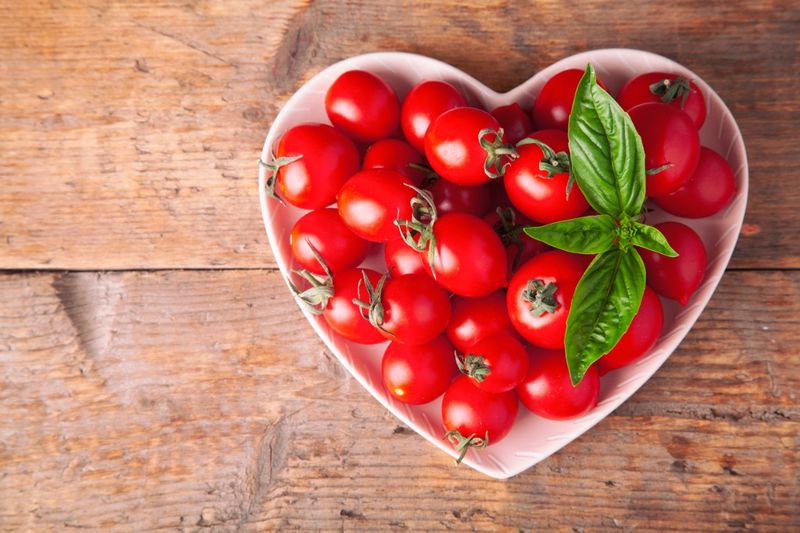
Tomatoes are more than just a kitchen staple; they’re a heart health powerhouse. Rich in lycopene and potassium, tomatoes have been shown to help lower blood pressure and oxidative stress. Whether fresh, in sauces, or soups, they add flavor and nutrition. Their vibrant color and juicy texture make them a favorite in many dishes. Did you know? Cooking tomatoes increases their lycopene content, enhancing their health benefits. Enjoy tomatoes in all forms, and let them nourish your heart and soul.
15. Whole Grains (Quinoa, Brown Rice, Barley)
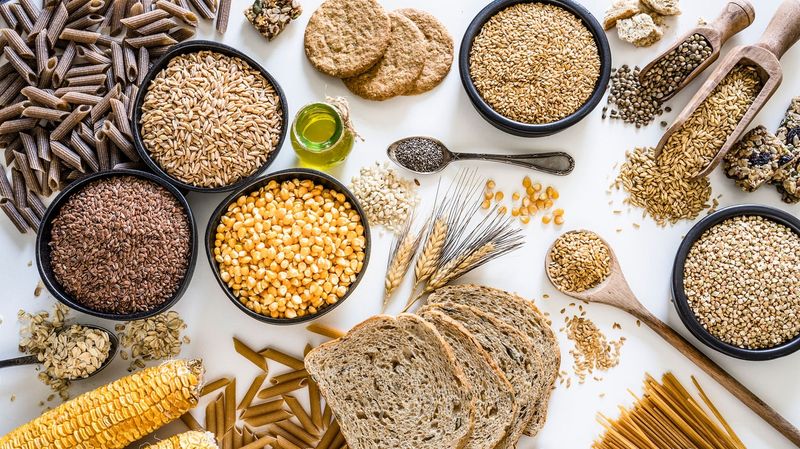
Whole grains like quinoa, brown rice, and barley are champions of cardiovascular health. They provide fiber and nutrients that reduce arterial stiffness and improve overall heart function. Picture a hearty bowl of whole grain salad, rich in texture and flavor. These grains are versatile, suitable for a variety of dishes. An insightful fact: Consuming whole grains regularly is linked to a significantly lower risk of heart disease. Incorporate them into your diet and enjoy their deliciously nutty taste.
16. Watermelon

Watermelon is not just refreshing; it’s a boon for heart health. Containing citrulline, it may help blood vessels relax, while its hydrating nature supports overall well-being. Enjoy a slice on a hot day, or blend it into a cooling smoothie. Its natural sweetness and vibrant color make it a summer favorite. A fun tidbit: Watermelon is over 90% water, making it a hydrating snack. Relish its juicy goodness and let watermelon contribute to your heart’s health in a delightfully sweet way.
17. Olive Oil
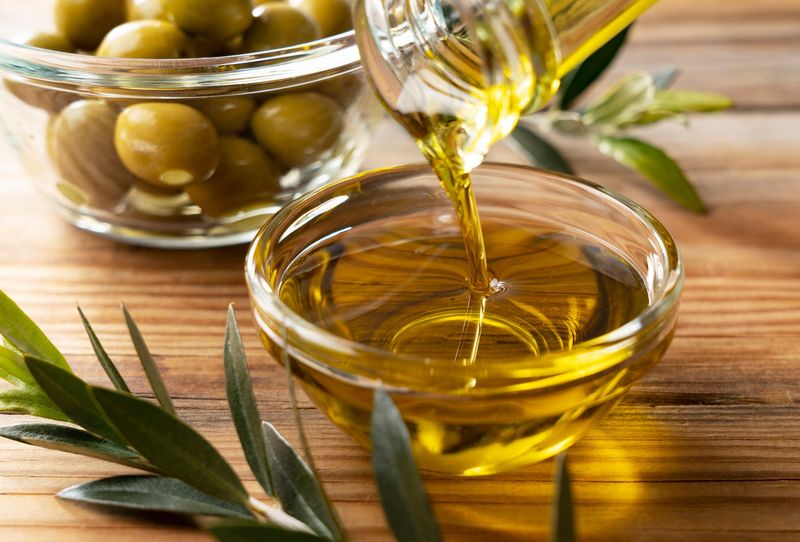
Olive oil is a cornerstone of the heart-healthy Mediterranean diet, known for its polyphenols that reduce inflammation and improve artery function. Drizzle it over salads, or use it as a base for cooking, its rich flavor enhances dishes. The golden hue of extra virgin olive oil is a testament to its purity and quality. Did you know? Regular consumption of olive oil is associated with a reduced risk of heart disease. Embrace its benefits and let olive oil be a staple in your culinary adventures.
18. Carrots

Carrots, with their vibrant orange hue, are more than just a crunchy snack; they contain antioxidants that may aid in relaxing blood vessels and improving circulation. Whether eaten raw, steamed, or roasted, carrots add sweetness and nutrition to any meal. Their versatility makes them a staple in both savory and sweet dishes. A carrot curiosity: Carrots were originally purple before the familiar orange variety was cultivated. Enjoy their crisp texture and let carrots bring their heart-friendly goodness to your table.
19. Celery
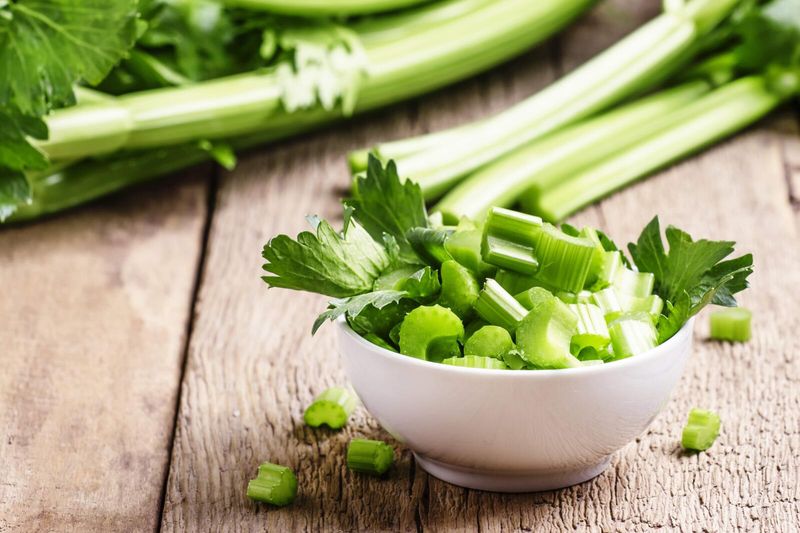
Celery, with its crisp texture and mild flavor, offers more than just crunch. It contains phthalides, compounds that may help blood vessels expand and reduce pressure. Picture a crunchy celery stick, perhaps dipped in hummus, offering a refreshing snack. Celery is a versatile ingredient in salads and stews, adding freshness and nutrition. Fun fact: Celery has been used in traditional medicine for centuries to manage blood pressure. Incorporate celery into your meals and enjoy its subtle goodness.
20. Kiwi
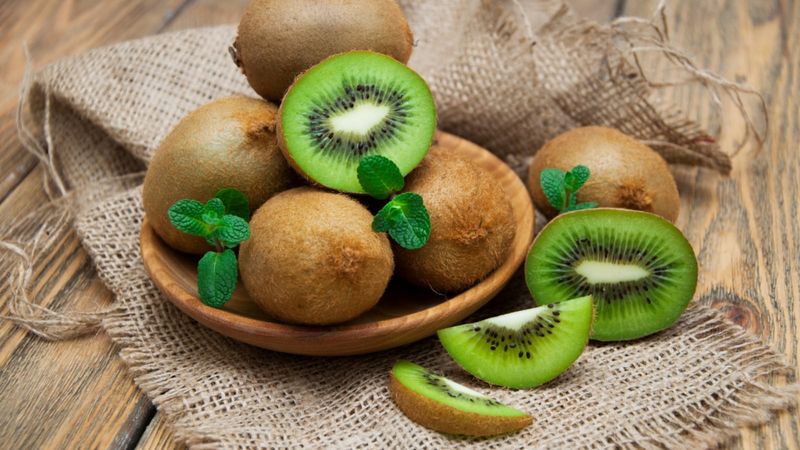
Kiwi, with its bright green flesh and tangy taste, is a tropical delight linked to reduced systolic blood pressure. Eating a few kiwis a day can boost heart health, thanks to their high vitamin C and potassium content. Enjoy them as a snack or in fruit salads, their unique flavor is a refreshing treat. Did you know? Kiwi was originally known as Chinese gooseberry before gaining its current name. Relish its zesty goodness and let kiwi contribute to your heart’s health with each bite.
